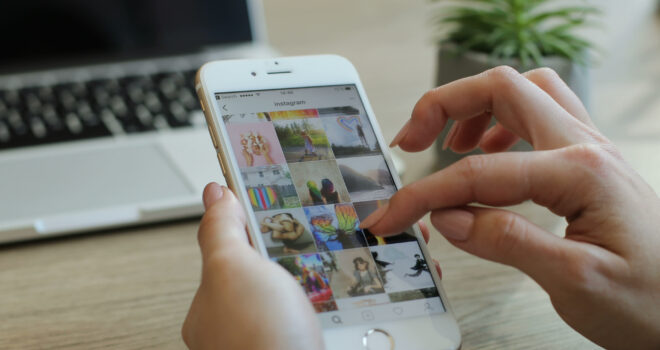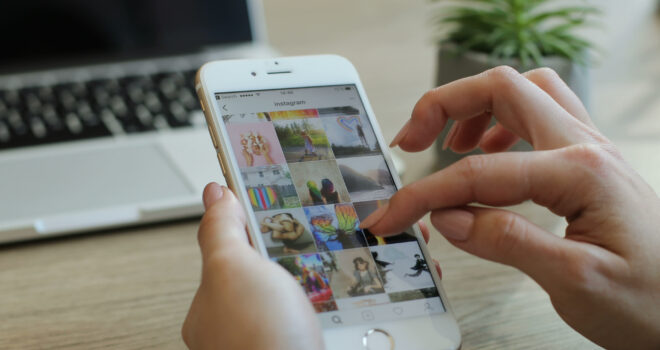A friend and I went on a long bike ride in a nearby state park last summer. We rode by a beautiful old hunting camp set back off a dirt road. I admired it, and my friend told me it used to be the site of a huge family reunion every year. “They don’t do it anymore,” she said. “People get busy, I guess,” she mused. I shrugged and guessed she was right. We are all very busy these days, aren’t we?
Or are we? Do we have to be?
“The biggest disease in North America is busyness,” said Thomas Merton — and that was before smartphones arrived on the scene and sabotaged so much of our free time. In my new book, Woke-Proof Your Life A Handbook on Escaping Modern, Political Madness and Shielding Yourself and Your Family by Living a More Self-Sufficient, Fulfilling Life,I label Big Tech as a Big Problem, and not just because the internet and social media are the vehicles by which so much woke influence is born, bred, disseminated, and festers. As our technology has advanced at warp speed, behavior that ignites the human faculties keeps being circumvented, and it’s commonly replaced by mindless scrolling that distracts from our Christian duty toward others and often stimulates unproductive emotions.
Consider that, despite our astounding technological advancements and widespread material wealth, we, as a nation, now have higher depression, fewer friends, and greater alienation than our parents’ or grandparents’ generations did. Also consider that too much screen time also increases inactivity, obesity, isolation, depression, anxiety, eye strain, poor posture, wrinkles, and sleep irregularities. Despite being a supposedly “social” platform that makes communication easier, social media tends to make us lonelier. It’s designed to suck us in and keep us checking up on other people, and research has found apps like Facebook, Snapchat, Instagram, and the like to be more addictive than smoking and alcohol — and just as harmful.
Physically, mentally, and spiritually, screen time is capable of ruin on all levels — if we let it. We must ask ourselves if we’re using our remarkable technology as a resource — discovering or communicating fruitful news and information, being fortified by a community, taking part in a health-giving routine, and so on — or if our devices are a recourse for filling time.
We’ve all seen it and likely done it ourselves: we’re told to sit down and wait at a doctor’s office, at the airport, in line at the post office, and the first thing we do is pull out our phone. For what? It didn’t ring or buzz. We didn’t receive a message. We’re looking for a distraction, for momentary entertainment. The time we used to fill by striking up a pleasant conservation with our neighbor, saying a prayer, philosophizing internally, or musing on the way interior paint colors are developed is now filled with silent head noise, as we’re all absorbed in a virtual world that’s filling our time and keeping the brain just-amused-enough so that it doesn’t have to think for itself.
Let us harken back to a time when people weren’t worn thin by the constant pings, dings, and rings of their cell phones. Chats on the telephone took place at convenient and appropriate times — not unexpectedly at any and all hours of the day and night — while driving, grocery shopping, or hiking in the forest. Conversations were generally planned, polite, and purposeful. News and information were relayed for an hour in the evening and only for an hour in the evening, as well as in publications that were (generally) thoughtfully written, printed, and mailed out, to be consumed in a measured manner. Entertainment, too, was something to be sought-after, not thrust upon you first-thing in the morning with a video of a Filipina TikToker “lip-syncing and bopping her head to the rhythm of the viral Millie B song.” (This mind-numbingly inane 10-second video has racked-up 683.4 million views on TikTok.)
Now of course, texts, emails, “news,” and entertainment are everywhere. Data reports vary on the amount of time the average American spends in front of a screen, but even the low-end estimates are appalling: in 2018, a New York Post story reported, “Americans spend nearly half of their waking hours (42 percent) looking at a screen.”
We must ask ourselves if we’re truly “busy” — productively so — or just distracted? Are we too “busy” freaking out over the latest mainstream media news story, or envying how comfortable and convenient our neighbors’ lives are, or trying desperately to convince them that our lives are perfect, to attend a family reunion? What could be more important than getting together with family once a year, in the woods, where there’s no cell phone service, but there is sunshine, warmth, tall, perfumed pine trees, a cozy cottage, a campfire, laughter, nature, love, and joy? What’s the point of everything, if not an annual family reunion in the forest?
Technology is, of course, a wonderful blessing from God, but cell phones are designed to addict us and distract us from God and from the needs of our neighbors. Our human appetites are boundless, which is why God provided very clear-cut guardrails for how to moderate ourselves. To allow online outrage, social media, and so forth to overshadow the overwhelming beauty and goodness of our world and to consume us completely, to the point that we’re constantly agitated and distracted from nobler work or numb to our surroundings, is a disservice to God and His countless gifts.
Let us ask themselves the purpose of our screen time: is social media bringing you closer to God by strengthening Christ-centered relationships, supplying you with a community of likeminded believers who inform, inspire, and invigorate you life? Or is it diverting you from the beauty of God’s creation, distracting your attention from His goodness, and putting you in a sour mood most of the time? Remain attentive to these questions and use your devices as tools — and sparingly.
Be selective in what your eyes and mind absorb. You wouldn’t open your mouth and let random strangers put any sort of unknown substance into your body, would you? Then why risk the same thing with your eyes, mind, and soul? You are what you eat. And watch, and hear, and read, and so forth. By consuming whatever Big Tech (including the mainstream media) throws at us, we’re essentially filling our minds with junk food, and it has the same negative effects on our souls as cheap, mass-produced, fake fast food has on our bodies.
Try incorporating these practices into your daily screen routine:
Designate phoneless areas of your home and commit to phoneless activities: walking in nature, going to the gym (you’ll make more friends without your earbuds!), dinnertime, sitting in waiting rooms, and so on.
If your phone causes you to sin, cut it off: leave it at home, in your purse, whatever.
Consider significantly reducing your social media usage or getting rid of social media all together.
Limit your consumption of news to an hour a day. Find one news program to watch, or one newspaper to read, or one podcast to listen to, and leave it at that.
Wear a watch. If you’re like me, you use your phone as a timepiece, but checking it can lead to reading emails and texts.
If you like to unwind by perusing social media, website, etc., set a timer and discipline yourself. It’s far too easy to be carried away and waste time on these platforms.
Image by My Agency on Shutterstock














